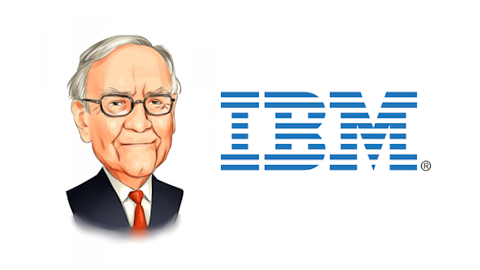Since its introduction decades ago, Internet has taken by storm most aspects of our lives and has disrupted most aspects of our daily lives. The financial services industry was not overlooked by the new digital evolution and in the last couple of years technology-driven applications have emerged in most segments of financial services. The trends for fintech look very good and it is gaining momentum. For example, in 2015 funding for fintech startups more than doubled to $12.2 billion from $5.6 billion in 2014. According to PwC Global Fintech Report 2017, 80% of financial institutions consider that their business is at risk to innovators and 56% of companies have focused primarily on the disruption.
However, the fintech industry itself is also prone to disruptions and the latest trend that stands to disrupt fintech and, by default, the financial services industry, is blockchain technology. Companies like UBS Group AG (USA) (NYSE:UBS) and International Business Machines Corp (NYSE:IBM) are already making big investments in this space. Blockchain, which is the technology underlining the famous Bitcoin and other cryptocurrencies, has a lot of benefits for the financial services industry, particularly in the field of international transactions. The same PwC report mentioned earlier states that 77% of financial companies expect to adopt blockchain as part of a production system of process by 2020. Banks have been aware of blockchain technology for several years, estimating that the advantages of the technology would allow them to eliminate middlemen in processes like settlement and clearing and work directly with each other. Santander projected that blockchain could allow banks to save around $20 billion per year.

Copyright: juliatim / 123RF Stock Photo
Blockchain, or distributed ledger, represents a decentralized shared database where each entry represents a block that is connected with the previous one using complex cryptography. Because the system is decentralized, it doesn’t require a central authority to police the network and can only be edited when the majority of the network participants approve of the changes.
Blockchain has been on banks’ radars and many of them have started exploring ways to incorporate it in their day-to-day operations. In fact, according to a report by Accenture in 2016, 90% of the major North American and European Banks are looking into ways to use blockchain for payments. For example, Swiss bank UBS Group AG (USA) (NYSE:UBS) developed a “Utility Settlement Coin” in 2016, which represents a digital cash equivalent of each of the major currencies backed by central banks. Last year, Japanese and South Korean banks started testing blockchain-based virtual fund transfers in partnership with Ripple, a San Francisco fintech startup that has its own cryptocurrency called XRP. A number of major banks, including Deutsche Bank, HSBC, KBC, Natixis, Rabobank, Société Générale and UniCredit have signed a Memorandum of Understanding that suggests they are working together on a product called Digital Trade Chain, which uses blockchain technology to connect all parties involved in international trade. International Business Machines Corp (NYSE:IBM), one of the leading tech companies in blockchain space, has been selected to work on DTC. In addition, International Business Machines Corp (NYSE:IBM) and UBS Group AG (USA) (NYSE:UBS) have launched a project called Batavia and have partnered with Bank of Montreal, Caixabank Erste Bank and Commerzbank. Batavia represents a global system for trade finance, which uses blockchain technology to track goods and automatically release payments aas they move around the world.
The ascension of blockchain technology has also paved way for new fintech startups to occupy new niches. In addition, the popularity of cryptocurrencies has created a new way for these startups to raise money through Initial Coin Offerings (ICO). ICOs allow startups to release tokens and sell them to the public. In turn, tokens can be later sold or used as payment for products and services offered on the startup’s platform. The newly created ICO market is gaining a lot of ground with more than $1.5 billion raised by various companies in the first six months of 2017 alone.
Among various fintech startups that have emerged lately, one that stands out is Forty Seven Bank. What puts UK-based Forty Seven aside from other fintech startups is that it will not only focus on blockchain-based digital banking services, but will also incorporate traditional banking, thus integrating both digital and physical banking segments. Forty Seven Bank, which is currently conducting the second stage of its ICO planning to sell up to 9.96 million Forty Seven Bank Tokens (FSBT) at a current rate of 0.00393 ETH per one FSBT token, is developing a platform that would allow third parties to develop banking applications within its infrastructure. Forty Seven plans to deploy its software infrastructure by the second quarter of this year and by the end of 2019 it plans to apply and obtain a banking license and provide full-scale banking services.
Forty Seven plans to offer its platform to other fintech startups, offering them the possibility to develop their own White Label bank or financial services institution and use the company’s existing infrastructure, which is already covered with a banking license and is complaint with the existing European and global regulations, such as the Basel III global regulatory framework and EU Payment Services Directive 2 (PSD2), which sets the legal foundation for the further development of an integrated internal market for electronic payments within the EU.
Private customers will be able to benefit from Forty Seven’s featured product, Multi-Asset Account, which is an application that can tie together several bank accounts (from different banks) with digital currency and investment accounts. Among its other traditional banking services, Forty Seven plans to offer insurance, payment and transfer services, as well as cash withdrawals at its own Smart ATMs and POS terminals that will include biometrics, allowing customers to link their credit cards or accounts to their fingerprints thus ensuring a more efficient payment process.
Disclosure: The opinions expressed in this article are Insider Monkey’s writer, Alex Oleinic’s. Insider Monkey received FSBT tokens in exchange for publishing this article. Insider Monkey doesn’t recommend purchase/sale of any securities, cryptocurrencies, or ICOs. Please get in touch with a financial professional before making any financial decisions. You understand that Insider Monkey doesn’t accept any responsibility and you will be using the information presented here at your own risk. You acknowledge that this disclaimer is a simplified version of our Terms of Use, and by accessing or using our site, you agree to be bound by all of its terms and conditions. If at any time you find these terms and conditions unacceptable, you must immediately leave the Site and cease all use of the Site.





